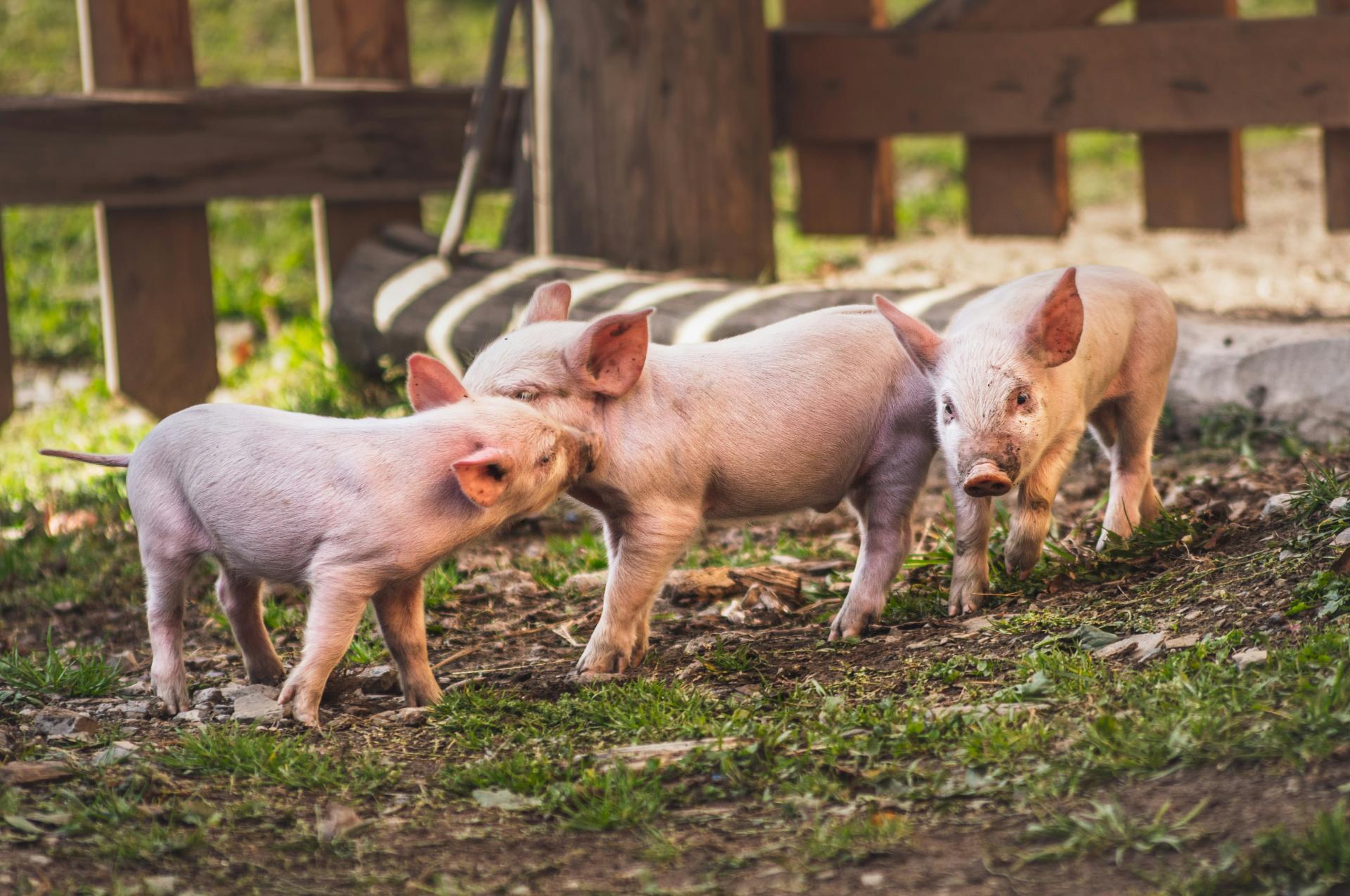In pig feeding, new solutions are constantly being sought, focusing on alternative protein sources such as insect and worm proteins, which could become a sustainable and effective option. Thus, in October 2024, researchers from the Latvia University of Life Sciences and Technologies (LBTU) began the implementation of the project "Insect and Worm Protein as an Alternative to Traditional Protein Sources in Pig Feed to Achieve Climate Neutrality Goals," in collaboration with pig breeders, specialists in the pig farming sector, and feed manufacturers.
Although there have not yet been studies in Latvia on the impact of insects and worms on pig development and pork quality, insect farming was actively promoted as an alternative to traditional protein feed at the EuroTier exhibition in Hanover, Germany, in 2022. Insects and worms are considered promising protein sources for animal feed because their production requires limited amounts of water and land, and they can add value to less valuable agricultural by-products. These new feed sources could replace currently used protein sources that are imported from European countries or the USA. Most of this feed is made from soy, the cultivation of which is a major cause of deforestation, particularly in Brazil and the Amazon rainforest, often referred to as the "lungs of the planet."
Pigs are known to be omnivorous animals with a digestive system adapted to utilize various types of feed. In the future, traditional plant-based proteins in pig diets could be replaced with alternative sources such as insects and worms. There is a possibility that traditional protein sources may not be available in the same quantities as before. Scientists estimate that the situation could significantly change in the next 20–30 years, leading to a global protein deficit.
The goal of the initiated project is to explore the application of new, biologically complete additives made from insect and worm proteins in pig feeding, which could serve as alternatives to traditional protein sources and promote the achievement of climate neutrality goals.
To achieve this goal, researchers from the Animal Science Institute of the Faculty of Agriculture and Food Technology and the Institute of Economics and Finance of the Faculty of Economics and Social Development are collaborating with partners from companies SIA "Nutricon" and SIA "Zarumi EK," which will supply new feed ingredients for pig farming at Z/S "Stepnieki II." Additionally, a consultant from the Agricultural Resources and Economics Institute (AREI) will participate in feed preparation and the evaluation of the feed's chemical composition, while the Latvian Pig Breeders Association (LCAA) will promote the results obtained from the research. The study is planned to take place over three years.
Dr. Lilija Degola, the leading researcher at the Animal Science Institute and project manager, states: "Various insects, worms, and bugs are a natural part of the diet of wild pigs. They make up about ten percent of a pig's natural diet. The strong nutrient profile of insects, worms, and bugs improves pig health. They contain all the amino acids necessary for optimal pig development, as their protein content is high. There is a hypothesis that the growth rate of pigs could increase by approximately two percent, based on muscle tissue formation in the pig's body. Including insects in pig feed will thus enhance not only animal welfare and industry efficiency but also the nutritional value of pork products we consume, thanks to the improved diet and overall health of the animals."
The primary potential beneficiaries of the project will be pork producers and consumers. It will be possible to reduce the amount of imported soybean meal in pig feed. Insects, worms, and bugs can provide a biologically complete protein supply for pigs. Insects can be farmed in Latvia using organic waste substrates. This way, they can effectively convert low-quality waste into high-quality proteins, which will, in turn, help achieve climate neutrality goals.
Photo: Unsplash.com
